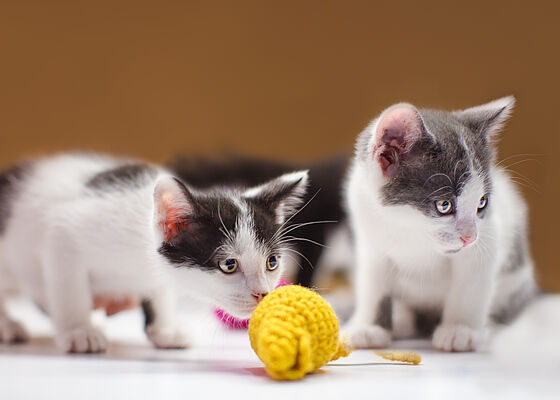Socializing with People
Healthy socialization is attained most easily by starting young. Studies show that kittens who get more attention and petting are more likely to thrive. A kitten under the age of five months is much easier to handle and socialize to humans than an adult cat. But that doesn't mean an adult cat cannot form strong bonds with others.
When adopting an adult cat, remember that he has already formed an opinion about humans. Some may readily jump at the chance to be back in a warm lap. Others may need more time to build trust or to learn the rules of appropriate feline-human interactions.
Socializing with Other Cats
Cats are intelligent creatures. They learn by observation, imitation, and trial and error. Most behaviorists believe cats lead healthier, happier lives with another cat in the house. Sharing the house with another living creature helps break up monotony and loneliness and creates a more socialized cat.
Boredom is the root of many behavior problems. One way to prevent boredom is to adopt a companion who will act as a playmate, partner and friend. A cat companion also reduces the risk of your cat developing destructive behaviors or becoming depressed or incredibly needy when you are home. Young male cats (3 to 24 months) have an especially strong desire for a buddy.
However, even with a companion cat, human caregivers will most likely still need to provide both cats with structured play experiences.

